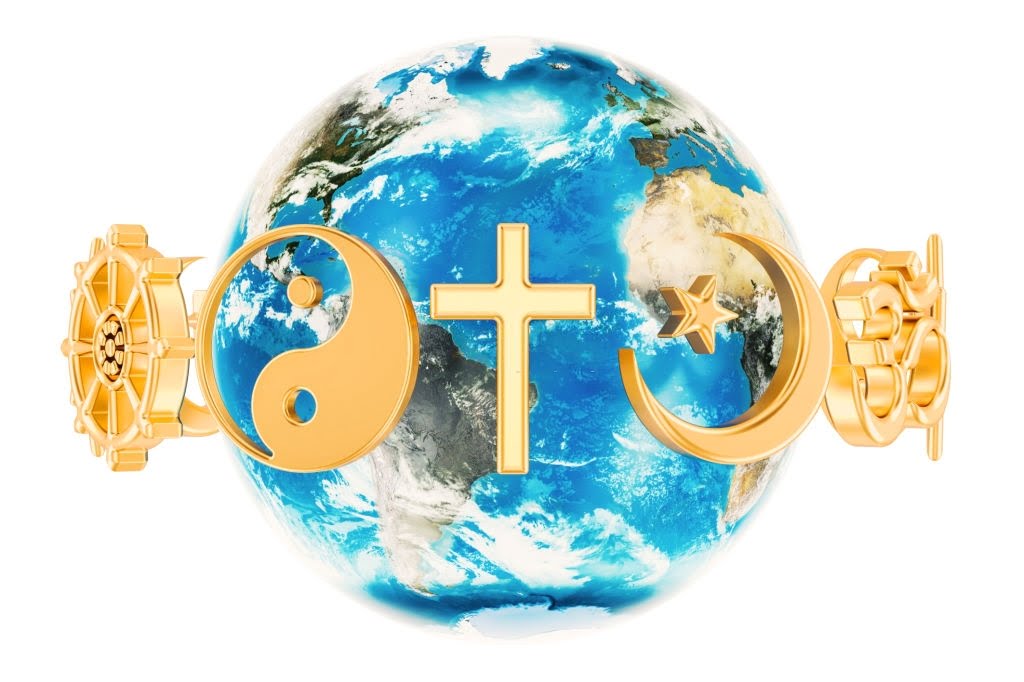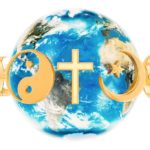Examining the Origin of Religion in Human History

The study of the origin of religion and the many critical questions that follow has always been on the minds of ordinary people, philosophers, anthropologists, and sociologists. In this paper, a more theological approach will be applied to find answers. In addition to a theoretical approach used by sociologists to link religion and the role that it plays in society. The theoretical terms will be critically analyzed, evaluated, and synthesized to come up with the best possible answer. Also, the sociological terms will be examined closely.
The record of religion is as ancient as the record of human existence, and ever since it has played an integral part in society. Wherever people existed religion is essential to them. Many people feel obligated to honor religion because it was passed down from generation to generation and therefore feel obligated to honor the tradition of practicing rituals and customs that go along with religion. However, one may ask what religion is; many will agree that there is no one meaning to define religion because religion holds different meanings for different people. Most dictionaries coined it to be, “a set of beliefs and practices that are sacred to people”. Conversely, according to Hervieu-Léger, “Religion is understood as the mechanism of meaning which enables humanity to transcend the deceptions, uncertainties, and frustrations of everyday life” (Hervieu, 2000: 34). In other words, religion is an escape from the stresses and anxieties that come with life. So, what do humans know about how religion originated? Let’s investigate.
When we think of religion, we think of names like Jesus Christ, Mohammed, and Buddha. This tells us every religion has a God or gods, which devotion is rendered to archeologists and anthropologists who have found artifacts of primitive and underdeveloped civilization that connects them to the worship of some deity. Besides, the New Encyclopedia Britannica asserts that “as far as scholars have discovered, there has never existed any people, anywhere, anytime, who was not in some sense religious.” So, the question that is in the minds of many is, where did all these religions come from? Regardless of the differences and the similarities among them, could they have started on their own or could they come out of one source? This logically brings to mind the question, why and how did religion begin? It is of crucial importance to all who have a desire to search for the truth about religion and religious beliefs. On the other hand, a great many people acknowledge no affiliation to religion or any personal beliefs in God. These people are known as atheists and agnostics. Their beliefs are based on the fact that God is not known. There are others like sociologists who are interested more in the social impact of religion on individuals and institutions, more than the fundamental origin of the history of religion (Schaefer 2003). Therefore, will it be reasonable to conclude that the religion that we were born into is the whole truth about religion? For instance, if someone was born in Haiti or the Dominican Republic, then without any choice, he or she has indeed been as a Catholic. If someone was born in India, then it is a strong possibility to become a Hindu. Moreover, if your parents were from Iran, you would probably be Muslims (Watch Tower Bible and Tract Society of Pennsylvania, 1990) The question, then, is whether the religion that people are born into is the true religion that God accepts. Well, if that concept were to be true, then humans would perform rituals of scarifying their children to the Gods and fertility worship of Baal and Ashtoreth on the foundation that if my ancestors practice those rituals, then follow in the same way.
Another point of interest is the participation of religion in past and present warfare. These wars had a fatal impact on millions of human lives, and humans were the ones to suffer so miserably, all in the name of religion. These had the favor from the Pope to execute war and kill domains. All in the name of religion, why have millions of humans lost their lives due to this? Is Christendom supposed to be trusted by the masses? In the past, the world has seen two great world wars, Catholics have killed their own Catholics, and Protestants have killed Protestants by the blessings of the pope and the Christian political leaders. Then the question arises, can religion be trusted? According to Cloton, men will wrangle for religion, write for it, fight for it, die for it, anything but live for it…where true religion has prevented one crime, false religion has offended a pretext for thousands. (Cloton, 2015)
This paper will investigate the many theories that are associated with religion because the different theories seem to contradict the other theories or add to it. While others try to simplify the theory or embellished it with many terms and conditions, the differences and similarities in religion will be carefully evaluated to form a conclusive argument on the topic of religion. Also, the synthesized question about the origin of religion and how really did religion got its start. With that being said, two sociological theories will be examined to see how those concepts affect the role of religion in society
Modernity and Secularization Theory
Secularization theory is based on the process whereby society moves away from religion and becomes secularized, the transition comes due to advances in science and social norms. According to Casanova, all founding fathers of sociology shared the thesis of secularization: from Karl Marx to John Stuart Mill, from Auguste Comte to Emile Durkheim, from Max Weber to Sigmund Freud. The author concluded that even though sociologists share the thesis of secularization unless it is fully analyzed and synthesized in every situation and conditions taking all the social factors into consideration, the theory can fade out eventually (Casanova, 1994: 17). For instance, when the colonization of the Assembled States started, a considerable lot of the homesteaders held solid religious convictions that guided their conduct and filled in as a basic system for society. As that society progresses in science and innovation, notwithstanding expanded assorted variety among the populace, implied that one single religion was never again satisfactory as a structure and after some time religion came to be supplanted by other sociological frameworks.
However, can society say that the theory is true today? Here is where modernity comes into focus. Modernity in the Muslim society has led to significant growth of Muslim revivalism. This has happened because of the immediate impacts of advancement, which infringes on customary social orders by outside on-screen characters and impacts, and in response to Western private enterprise and its dangerous effects as experienced by nearby and conventional networks. (Keskin, 2011:7). Therefore, if the theory of secularization is correct, then why is religious revivalism increasing? Modernity is a major factor for religious revivalism in the West and Muslim societies; the secularization theory needs to be reviewed
Theory of Animism & Animatism
English anthropologist Edward Tylor (1832-1971) considered that hallucination, dreams, vision, and dead bodies cause ancient people to assume that every living thing possesses a life force. As stated in the theory, since these people have dreams about their dead relatives; they conclude that a life force carries on existence in the afterlife, that it departures the body and starts to dwell in trees and rocks. After that, the lifeless body and the objects, as well as the souls then occupied, came to be worshipped as gods. As a result, religion originated. To add on to this theory, a review was essential to the English anthropologist R.R Marett (1866-1943), who introduced a better hypothesis of animism, which he termed as animatism. He considered the convictions arrangement of the Melanesian of the Pacific Island and the locals of Africa and America, Marett presumed that rather than an individual soul, antiquated individuals trusted a soul drive that acted everything: that conviction stir feelings of dread and ponder in people, which turned into the establishment of his crude religion. (Watch Tower Bible and Tract Society of Pennsylvania, 1990). Marett includes that religion was basically man’s passionate reaction to the obscure. Marett’s most favored statement was that religion was, “not so much thought out as danced out.”
Statement of Truth
According to the animism & animation theory, the soul survives after death. Examining this theory from a Christian point of view, the question of importance is, how can the soul survive death after dying? Is it even logical to think so? Let’s examine. What does the ancient book say about, “Survive after Death?” Many religions and spiritualists are convinced that the “immortal souls” of their loved ones survive death. However, the Bible clearly stated, “The soul that sinneth, it shall die.” (Ezekiel 18:4, 20.) The Bible says that the soul dies and numerous scriptures prove the soul dies. Samson, the Philistines cried out: “Let my soul die with the Philistines.” (Judge 16:16,30). So, who are these spirits who converse with the medium? They unquestionably can’t be the spirits of individuals who kicked the bucket since the Book of scriptures trains that the spirit bites the dust, in this manner, these are spirits who put on a show to be people and put on a show to be relatives of human families. It is a form of deception, so it is easy to conclude based on the scriptures that they must be demons, also known as ghosts, who are responsible for what the Bible calls, “lying divination” and “lying signs and wonders.”
Different yet Similar
Many religions may seem any different, but in essence, are similar. If we strip away the embellishment and add on, there will be one familiar source for everything. Also, remove all the conditions that would affect a similar outcome like climate, language, and other factors, then what is left is striking similarities in religion.
Similarities between Catholicism and Buddhism
People would never think that there are striking similarities between the Roman Catholic church and Buddhism. However, when differences in language and culture are settled, if we are honest about it, then one will see they have a great deal in common. The two religions are significant in customs and functions, for example, candles, incense, sacred water, the rosary, pictures of holy people. The two religions have places for priests and nuns and are noted for the chastity of clerics, exceptional pieces of clothing, heavenly days, and unique nourishment, and the rundown goes on. This is to outline the inquiry in the center, for what reason do two religions that have all the earmarks of being so extraordinary to have such a large number of things in like manner? So, what can we conclude? Even though culture and traditions are distinct, when it comes to religion many people have similar ideas, then the question remains, did each religion come from a commonplace? More or less, yes. So, the evaluation of the similarities of religion is substantial evidence that religion begins each in its own separate and independent way.
Conclusion
It is evident that the answer to how religion began will have to be answered in the distant future because artifacts do not tell the true story of the lives of primitive people. Archaeologists can only assume what life may have been like and then try to form a picture of the origin of their religion and religion worldwide. Sociologists, on the other hand, seek to measure the role religion plays in society. The question led a functionalist, Emile Durkheim to study the Aborigines of Australia. He discovered that they worshipped a totem that each clan can identify with and so he concluded how religion got started and the social role it plays in society. Is that the right measuring gauge to use to determine how religion got started? Suppose the evidence was present all along with the biblical story of the Genesis Account and Jesus referring to one God; distinguishing that God from all the rest of the Gods that were made out of wood, stone, and other organic material. The answer lies in everyone searching for the truth.
References
Casanova, Jose. 1994. Public Religion in the Modern World .Chicago:
University of Chicago
Colton, Charles Caleb. 2015. Many Things in Few Words:
Addressed to Those who Think. Sagwan Press
Durkheim, Emile. 2014. The Rules of Sociological Method: And Selected Texts on Sociology and its Method. New York: The Free Press
Hervieu-Léger, Daniele. 2000. Religion as a Chain of Memory. Polity Press
Schaefer, Richard .T. 2003. Sociology: A Brief Introduction. McGraw-
Hill Higher Education
New World Translation of the Holy Scripture. 1984. Watch Tower Bible
And Tract Society
Watch Tower Bible and Tract Society of Pennsylvania. 1990. Mankind’s Search
For God. Watchtower Bible and Tract Society
Keskin, Tugrul (Eds.). 2011. The Sociology of Islam: Secularism, Economy and
Politics. Ithaca Press







Religion is a very complex topic, and even if we don’t have a religion, at least we have our own spiritual aspirations. It is true that it is hard to find the real source of the birth of religion, but I think that any religion has its own realistic demands. This is because people want to accomplish through religion what they cannot accomplish in reality. In other words, religions originate from the fear of the unknown, which, at the same time, makes us appreciate and fear our world more. This is essentially a very good thing. I wonder Susanna how you see this?